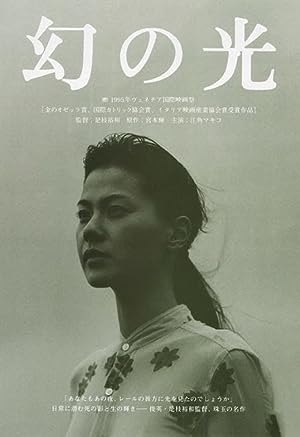Maborosi is a film about a young woman’s reaction and adjustment to inexplicable loss as a child to a young woman. Maborosi is the first drama feature film directed by Hirokazu Koreeda, and the last film that I have seen by him available in the US. Sadly the transmediation of Maborosi from film to DVD was not entirely successful, and I would not be surprised if was transferred from film to VHS then VHS to DVD because the contrast quality was poor, and I could not discern many of the scenes.
Even so, for a first film, Maborosi manages to capture the elusive mysteries of death, our role in it and the insecurity of joy in the face of that knowledge. I have seen nine of Koreeda’s films, and Maborosi is the only one in which romantic/sexual love dominates and is depicted. Koreeda is a master at depicting the passage of time without clunky exposition. Maborosi is probably Koreeda’s most laconic film that I have seen.
All the visual signs of Koreeda’s interest in points of transition (trains, bridges, passages, bus stops) are evident in Maborosi, but become symbols of transition from life to death and from one stage of life to another. Maborosi also effectively shows how someone becomes a part of a community. My favorite brief scene is when the grandfather and the main character’s sun are napping together on a boat.
If Koreeda makes a film, you should definitely see it so you should check out Maborosi despite the technical difficulties and subtitles. Maborosi is a lesson in loss and transition without descending into cliché that many filmmakers need to learn. You will find no rom tragedy here.
Stay In The Know
Join my mailing list to get updates about recent reviews, upcoming speaking engagements, and film news.





